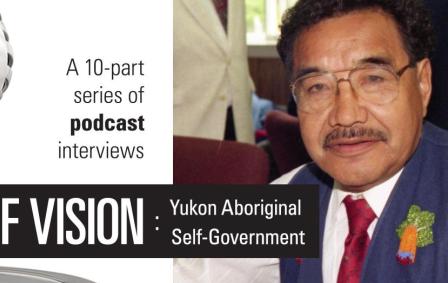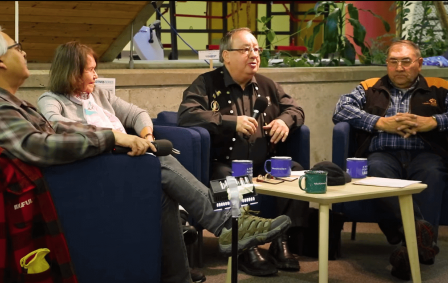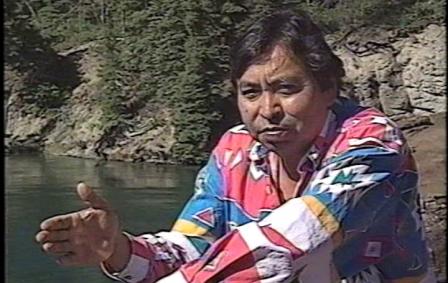Yukon First Nations Self-Government Classroom Toolkit
Lesson 2: The Trailblazers
Remember to scroll past the resource cards to view additional ideas on how to implement this lesson in your classroom.
Learning objective
Students learn about trailblazers in Yukon First Nations history and their role in shaping the path towards self-determination, self-government, and social justice.
Curriculum core competencies
- Make reasoned ethical judgments about actions in the past and present, and assess appropriate ways to remember, reconcile, or respond.
- Evaluate the contributions of Yukon First Nations individuals in advocating for self-determination.
- Assess the long and short-term causes and consequences of these Yukon First Nations trailblazers’ actions.
- Topic: The Trailblazers
Activities
Student project
Students can research self-government trailblazers who were advocating and pushing for First Nation self-determination. They can listen to podcasts, view videos and read stories on MappingtheWay.ca.
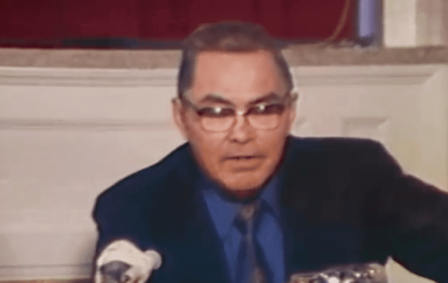
Elijah Smith
Elijah Smith, or Tä Me in Southern Tutchone, was born in Champagne in 1912. In 1973, he led a delegation of Yukon First Nation leaders to Ottawa to present Together Today for our Children Tomorrow to the Prime Minister of Canada, which marked the beginning of modern land claim negotiations in the Yukon.
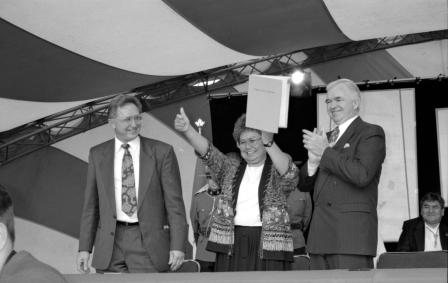
Judy Gingell
For more than 40 years, Judy has promoted and advanced Indigenous rights and governance in the Yukon. Judy was part of the 1973 delegation to Ottawa that initiated the Yukon land claims negotiation process. As Chair of the Council of Yukon First Nations (1989-1995), she was instrumental in self-governance and land claims negotiation with the Government of Canada.
Multimedia
Students can choose a trailblazer and create a profile that includes the person or group of people’s:
- achievements;
- challenges faced; and
- contributions.
Classroom toolkit
Check out other lessons and use the quiz to test your students on Yukon First Nations Self-Government.
